Did you know that consuming too much sodium can raise blood pressure, increasing the risk of heart disease? Cardiovascular disease accounts for one-third of all global deaths—making sodium reduction a key step toward better heart health.
With up to 50% less sodium, our innovative salt helps food brands create heart-smart products without compromising flavor. Let’s make a difference—one bite at a time.
Food industry is changing and we are here for the challenge. Read the latest news on the industry.

FDA Proposes Requiring At-a-Glance Nutrition Information on the Front of Packaged Foods
The FDA has proposed new regulations requiring “glance” nutrition information on the front of packaged foods, aiming to help consumers make informed dietary choices quickly and easily. This initiative reflects the growing emphasis on transparency in food labeling and provides an opportunity for brands to showcase their commitment to health.

CAP battered over delay in guidance for junk food ads
Delays in CAP’s guidance for junk food advertising have sparked discussions across the industry. As brands await clearer directives, a focus on innovation and reformulation becomes crucial. Understanding regulatory changes and proactively adapting marketing strategies can help brands align with upcoming guidelines and promote healthier offerings.

Driving Profit with the Better-for-You Shopper
As consumer preferences shift towards healthier options, brands have an opportunity to drive profit by catering to the “better-for-you” shopper. This trend highlights the growing demand for nutritious and transparent products that align with health-conscious lifestyles.
Explore strategies for engaging this key demographic and leveraging their preferences to boost your brand’s success.

California to investigate ultra-processed foods
California is launching an investigation into ultra-processed foods as part of a broader initiative to understand their impact on public health. This investigation comes in response to growing concerns about the nutritional quality of these products and their contribution to health issues.
As the food industry navigates these regulatory developments, it’s crucial for brands to consider the implications for product formulation and transparency. Proactively addressing health concerns will be vital for meeting consumer demands and regulatory expectations.




